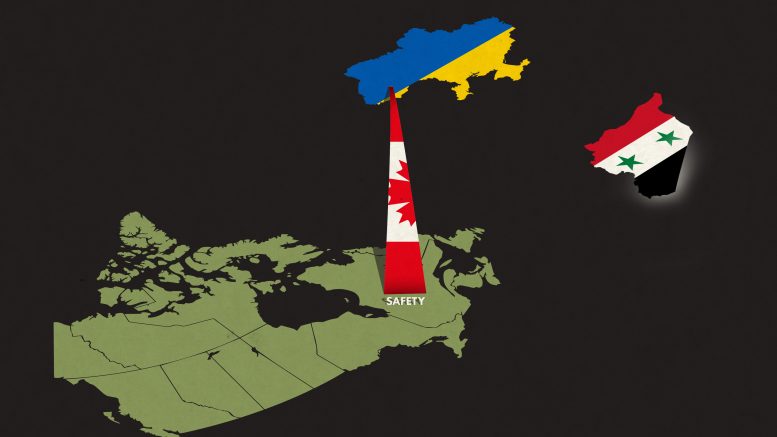War is terrible no matter who it affects. And where there is conflict, inevitably there will be people that are forced to flee for their lives. Although it is unrealistic to expect to save everybody from the perils of war, Canada and other western countries have not stepped up to support as many people as they should.
It is great to see the way Canada has welcomed Ukrainians fleeing the war in their country and seeking asylum in Canada. I think we should all be glad to see our government creating a new immigration path to make it easier for Ukrainians to come to Canada. Although it will still be difficult for many to leave Ukraine and make it here, I hope that these measures ensure that we can help more people reach safety.
But I, like many, question why we have been able to take steps to reduce red tape for people fleeing Ukraine, when in similar situations in the past, government officials said it was impossible to do so. Last summer, Canada promised to allow in 40,000 Afghan refugees seeking asylum, but as of mid-March we are nowhere near that number — just 8,580 have arrived. A spokesperson for Immigration, Refugees and Citizenship Canada has blamed restrictions and lack of support for why more have not been able to flee successfully.
So why the different approach? Many pundits have argued that the answer is racism. It is obvious that the war in Ukraine is being treated differently by Western nations. Some media outlets have already drawn on the colonial “savage/civilized” binary to justify privileging Ukrainian refugees over people fleeing from marginalized nations.
Considering the outpouring of support for Ukrainians, it is hard not to think that we have been so much more welcoming to European refugees because they are largely white and Christian.
These racist attitudes about who deserves support are not the federal government’s fault alone. Being a representative body, the government is more likely to help people when it is politically beneficial. The disproportionate media coverage that Ukraine refugees have received compared to marginalized nations — where violence has come to seem natural in the western imagination — has cemented the idea that white people in conflict zones deserve more aid. The government’s efforts to welcome Ukrainians might be influenced by the fact that white voters are concerned with the idea of a European war but remain indifferent about wars in places they consider more foreign.
Further, we cannot underestimate the significance of the large population of Canadians with Ukrainian heritage.
Although it is necessary that Canada welcomes as many Ukrainians as possible, we should not privilege their aid over that given to racialized people stuck in conflict zones. We must set the standard with Ukrainian refugees and apply it to all those struggling to escape war.
The influx of Ukrainians coming to Canada must stimulate a conversation about standards for refugees and immigrants. Although it is concerning there is a clear difference in the way Canada has handled this refugee situation compared to those in the past, it is promising that this response may start a conversation about racism and hopefully set a precedent for future crises.


